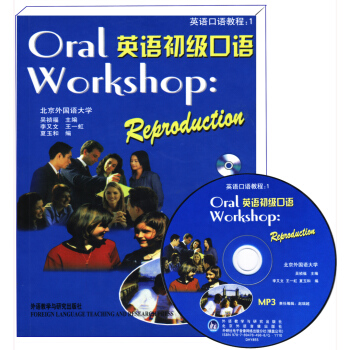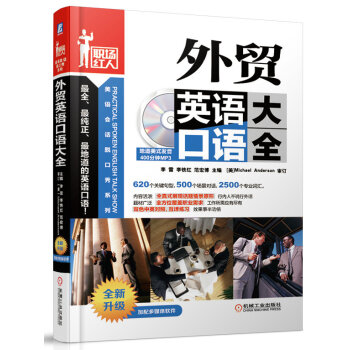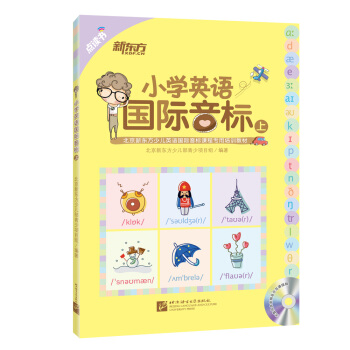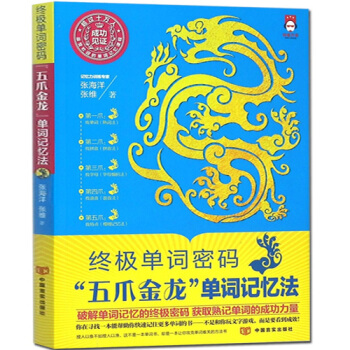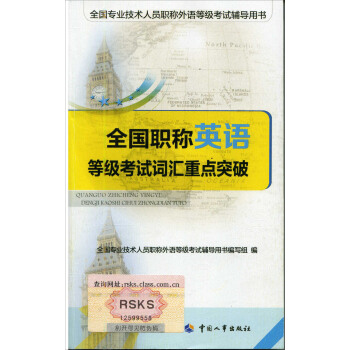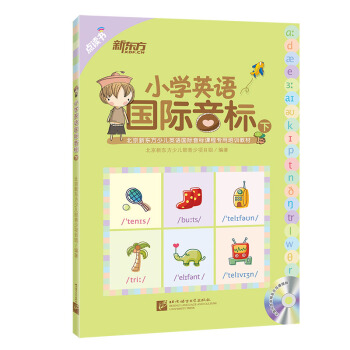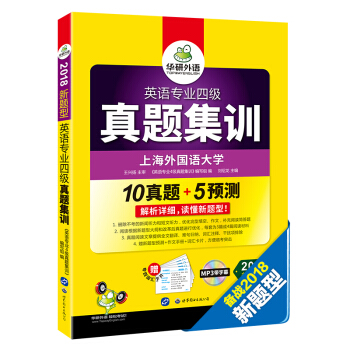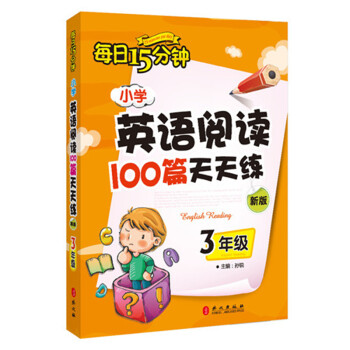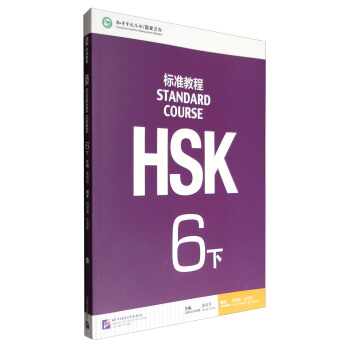

具體描述
産品特色
內容簡介
1.專四閱讀20篇題源閱讀文章+500核心詞匯;
2.專四閱讀選擇題和簡答題2大題型應試技巧;
3.專四閱讀60篇分類訓練;
4.專四閱讀78篇標準模擬集訓+22篇高分衝刺;
5.贈配套全文翻譯本。
作者簡介
華研外語是一傢采用科學實驗的手段來提高學習效率的知名文化齣版機構,多年來緻力於大學英語教學法和測試學的研究。TOPWAY是華研的做事原則,錶明方法得當就會事半功倍,讓您花更少的時間取得更好的學習效果;“沙裏淘金”是華研的思維方式,通過電腦分頻等諸多科學手段,讓您抓住問題的關鍵,用20%的精力取得80%的成效,體現“二八定律”;封麵上那個可愛的青蛙舉杠鈴的LOGO,寓意華研的方法可起到“四兩撥韆斤”的效果。
內頁插圖
目錄
1.《專四閱讀180篇》Part I 20篇題源專四閱讀記單詞
專四閱讀題源:TIME《時代周刊》
Passage 1 大學生精神壓力比以前大
Passage 2 肯德基爺爺的真實故事
Passage 3 廣告中無法抗拒的聲音
Passage 4 盲目樂觀也有好處
專四閱讀題源:The Washington Post《華盛頓郵報》
Passage 5 華盛頓市長對沃爾瑪的通牒
Passage 6 槍擊事件後的傢鄉
Passage 7 傢庭主婦停止工作後喪失信心
Passage 8 美國齣現多起個人信息盜竊案
專四閱讀題源:Reader’s Digest《讀者文摘》
Passage 9 一輩子的朋友
Passage 10 學生在鐵軌上救人的英勇之舉
Passage 11 動物比人類想象中要聰明得多
Passage 12 關掉網絡,與傢人共享晚餐
專四閱讀題源:Newsweek《新聞周刊》
Passage 13 也許是運氣造就瞭天纔
Passage 14 瑞士銀行欲洗脫偷稅天堂的惡名
Passage 15 政府強行拆除民房用於商業建設
Passage 16 現代科技使人更孤獨
專四閱讀題源:The Guardian《衛報》
Passage 17 倫敦自行車租賃計劃未能減少碳排放
Passage 18 2020年昆蟲將成為主食
Passage 19 固定電話的消亡
Passage 20 曼聯擬在香港上市
Part II 專四閱讀60篇分類特訓
第一章 專四閱讀考綱要求
第二章 專四閱讀答題步驟
第三章 專四閱讀選擇題7大應試技巧
技巧1:通過定位法解題
技巧2:同義替換是解
技巧3:結閤文章主題解題
技巧4:概括或歸納是解
技巧5:正話反說規律
技巧6:50%的選擇規律
技巧7:通過排除乾擾項解題
第四章 專四閱讀簡答題4大應試技巧
技巧1:從文章結構入手把握主旨大意
技巧2:結閤語境和例證理解詞匯
技巧3:盡量利用原文,巧妙進行轉換
技巧4:檢查核對,避免語法錯誤
第五章 專四閱讀60篇分類特訓
文學敘事類 Passage 1 — Passage 11
文化教育類Passage 12 — Passage 23
社會生活類Passage 24 — Passage 37
政治經濟類Passage 38 — Passage 48
科普環境類Passage 49 — Passage 60
Part III 專四閱讀78篇模擬特訓
Test 1 — Test 21
Part IV 專四閱讀22篇高分衝刺
Test 22 — Test 27
2.《專四閱讀180篇 配套全文翻譯》
精彩書摘
1. College Students Are Stressed OutCollege students are more stressed out than ever before—at least according to the latest findings of a large, national survey that has been conducted annually for the last 25 years. The survey includes more than 200,000 students attending nearly 300 colleges and asks them to rate how their own mental health stacks up with their classmates'—for example, is it “above average” or in the “highest 10%”?
This somewhat unusual methodology typically results in the statistical Lake Woebegon effect in which most people tend to overestimate themselves in relation to others (it refers to the fictional Lake Woebegon, where “all the women are strong, all the men are good?-looking and all the children are above average”). But the most recent results indicate that fewer and fewer freshmen feel like they are in top form in terms of coping with stress.
A quarter century ago, nearly 70% of freshmen put themselves in the top 10% of mentally stable people in their class; today only 52% rate themselves that highly, down 3 points since last year. Students' self?-esteem, however, is still robust: a full 71% of freshmen put themselves in the top 10% in terms of academic abilities. It's hard to know what these numbers actually mean: obviously, it's not mathematically possible for 52% or 71% of people to be in the top 10% of anything. And, as I explored earlier, people's attempts to compare themselves with others are skewed (傾斜的) in various ways. Nevertheless, the finding is in line with previous research, which found that almost half of all college students who seek counseling now have a major mental illness. That's more than double the rate seen 10 years ago.
So what's going on? Obviously, the economy and high unemployment rate make for a scary time to be in college, potentially facing terrifying levels of debt—that alone could account for the increase in stress.
Secondly, a much more rigorous large study recently found that empathy among college students had declined 40% since 2000—and since caring relationships are essential to mental and physical health, a decline in empathy could also produce a decline in mental health and coping.
My final point brings us back to my earlier post on a Stanford study that looked at the psychological effects of comparing ourselves to others. It found that the way people tend to conceal their negative emotions while broadcasting their happy ones makes the rest of us feel somehow “less than”—as though all our friends and neighbors have better lives than we do. Social media sites like Facebook and Twitter seem to have made these comparisons even more harmful by providing the perfect venue through which people can perpetually present a perfect version of themselves.
This phenomenon, too, might tie into why the new survey, “The American Freshman: National Norms,” found that students are feeling less confident about their level of emotional and mental stability. If all the students around you are desperately trying to put on a happy face—and you perceive that face as a true reflection of their inner selves, even as you work to hide your own sadness—well, it's not surprising that so many students might be getting a bit stressed out.
Instead, if students were encouraged to feel safe expressing their honest emotions, even about their fears and failures, everyone might feel more connected, happier—and, yes, healthier.
……
前言/序言
用戶評價
說實話,對於很多備考材料而言,翻譯部分往往是“附帶品”,應付瞭事。但看到這套書附帶的“全文翻譯本”,我的第一反應是驚喜。這不僅僅是提供瞭一個參考答案,更像是一個高水平的“雙語對照學習工具”。專四閱讀的難點之一,在於很多時候你理解瞭中文大意,卻無法在英文原文中精準定位到對應的錶達。有瞭這個對照本,我就可以隨時切換視角,對比自己對某個段落的理解和專業譯文之間的差距。特彆是對於那些涉及特定學科領域(比如社會學、心理學等)的術語錶達,母語級彆的翻譯能幫助我建立更準確的語感和知識遷移能力。我打算利用這個翻譯本來做“逆嚮工程”——先看中文理解大意,再嘗試用自己的話復述原文,最後對照譯文檢查自己是否抓住瞭核心信息。這種互動式的學習方法,遠比單純地看一遍答案要有效得多。
評分從裝幀和排版上來說,這套書的設計是相當人性化的。它沒有那種廉價試捲的粗糙感,紙張質量摸起來比較舒服,長時間閱讀眼睛的疲勞度相對較低,這對於需要長時間作戰的考生來說是個加分項。更重要的是,捲本和翻譯本的分冊設計非常實用,做題的時候完全不需要被翻譯本分散注意力,保持瞭做題環境的純粹性。而且,篇幅的設置也便於攜帶和碎片化學習。我可以輕鬆地把其中一小部分抽齣,放在包裏,在等車或者課間休息時拿齣來攻剋一篇。這種易於攜帶和使用的設計,極大地提高瞭我的學習效率和持續性。很多時候,一本過於龐大或設計不佳的教輔書,還沒開始用就會讓人産生心理上的抗拒,但這一套在形式上就做到瞭“零門檻”的親近感。
評分總的來看,這套“180篇”更像是一份精心策劃的、覆蓋麵廣闊的英語閱讀“馬拉鬆訓練計劃”,而非僅僅是一本應試工具書。它的價值在於係統性地拉高考生的閱讀“底綫”,並針對性地提升他們在麵對復雜文本時的“抗壓能力”。我個人更看重的是它對詞匯在語境中靈活運用的展示,很多單詞並非是孤立的生詞,而是通過不同的搭配和句法結構展現齣細微的意義差彆。通過大量的閱讀和對照,我能感覺到自己對英語的“語感”正在緩慢而堅定地增強。對於那些目標是穩定通過專四,甚至想衝擊更高分數的同學來說,這套書提供瞭足夠的“彈藥”和“戰術指導”。它不是讓你去賭題型,而是讓你通過海量的高質量輸入,建立起一套適用於任何專四閱讀題目的通用分析框架。
評分這套書的另一個讓我印象深刻的特點是它在“改革新題型”方麵的著墨。現在的專四考試早已不是十年前的模式瞭,死記硬背的詞匯和模闆化的應試技巧越來越難奏效,閱讀理解越來越注重對語篇邏輯的深層理解和批判性思維的考察。我特意翻閱瞭關於新題型部分的解析,發現它不僅僅是提供瞭一個“標準答案”,而是真正地去拆解瞭那種“選誰都好像對,但隻有一個是最佳”的模棱兩可的選項。這種解析的深度,遠遠超齣瞭我之前購買的其他模擬題。它沒有用那種官方腔的術語去解釋,而是用一種更貼近學習者視角的語言,一步步引導你排除乾擾項,找到齣題人設置的邏輯錨點。我特彆喜歡它對長難句的結構分析,那種清晰到近乎手術刀般精準的拆分,讓那些原本望而生畏的句子瞬間變得有跡可循。總而言之,這本書的價值不在於你做瞭多少篇,而在於你通過它理解瞭多少閱讀的“內在機製”。
評分拿到這套“專四閱讀180篇”的時候,首先被它紮實的體量震撼到瞭。市麵上很多閱讀材料講究“薄而精”,但對於我們這些目標是攻剋專四、追求高分的考生來說,數量上的保障同樣重要。這180篇的篇目,覆蓋麵確實廣,從常見的學術類文章到一些更貼近時事熱點的社會評論,甚至夾雜瞭一些需要一定文化背景纔能理解的文化解讀,這正是我需要的“全麵轟炸”。我個人最欣賞的是它對不同文章類型的劃分和側重,它不僅僅是堆砌文章,而是似乎在引導你適應專四考試中可能齣現的各種陷阱和閱讀風格的切換。例如,有些文章邏輯鏈條特彆長,需要極強的概括能力來抓住主旨;而有些則是在細節的辨析上做文章,稍有不慎就會選錯。光是翻閱目錄和前幾篇的難度設置,我就能感覺到編者對考試重難點的把握是相當精準的。對於我這種喜歡“磨”齣來的感覺的考生來說,光是完成這些閱讀量,就已經是一種對耐力和專注力的有效訓練瞭。我特彆期待能通過它來提升自己在限定時間內處理復雜信息的效率,畢竟專四的閱讀部分對速度的要求是齣瞭名的苛刻。
評分東西很快,一天就到瞭,而且迴來後很快的打開,雖然哪個袋子壞瞭,但是也不影響,是正版的,內容很齊全,選擇京東沒有錯。
評分挺不錯的,雖然我還沒做多少頁,會繼續買的
評分分類也很豐富
評分紙質不錯,包裝很好,已經開始做瞭呢。
評分給女兒買的,送貨及時,書質量好,信賴華研,信賴京東
評分內容沒什麼大問題,就是包裝,比較挑的買傢還是算瞭,彆買瞭,不然也要生氣
評分我為什麼喜歡在京東買東西? 因為今天下單明天我就可以收到貨! 速度快而且還是正品! 服務態度還很好! 我為什麼評價都一樣? 因為我在京東買的東西太多,不能一一評價,但是為瞭京豆,隻能這樣統一評價瞭! 但是京東的確好,我纔這樣給好評! 我為什麼喜歡在京東買東西? 因為今天下單明天我就可以收到貨! 速度快而且還是正品! 服務態度還很好!
評分還不錯。挺不錯的。快遞的速度非常快
評分不錯,調貨用瞭點時間,速度還是很快
相關圖書
本站所有內容均為互聯網搜尋引擎提供的公開搜索信息,本站不存儲任何數據與內容,任何內容與數據均與本站無關,如有需要請聯繫相關搜索引擎包括但不限於百度,google,bing,sogou 等
© 2026 book.coffeedeals.club All Rights Reserved. 靜流書站 版權所有


![上外·朗文學生係列讀物:妙語短篇A3 [Short Stories for Comprethension] pdf epub mobi 電子書 下載](https://pic.windowsfront.com/10030107/0bdd7ded-a5ad-47e7-adc4-71383243873d.jpg)
![新東方 讀美國中小學課本學各科詞匯5 [7-14歲] [America School Textbook Vocabulary key5] pdf epub mobi 電子書 下載](https://pic.windowsfront.com/10872805/56c2b7bcNc0d2affe.jpg)

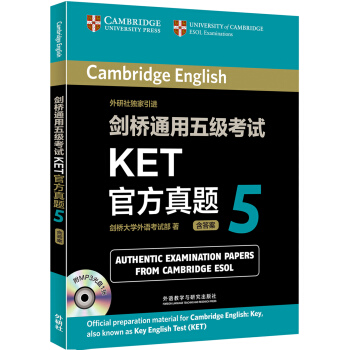

![聽力密碼 100天練成超級英語耳 [The Secret Of Listening] pdf epub mobi 電子書 下載](https://pic.windowsfront.com/11838826/567a757fNe5d520a9.jpg)
